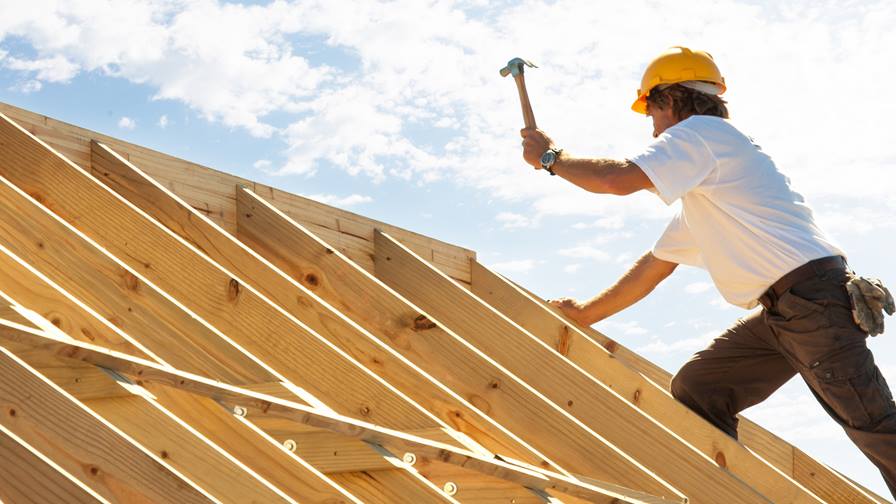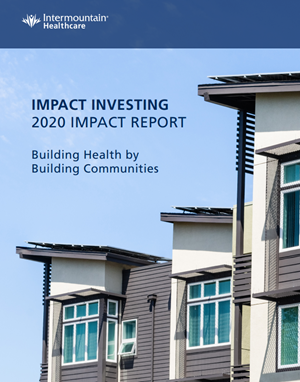
“Our financial return-on-investment expectations are lower for impact investments than our larger corporate- and pension-related investments,” says Bert Zimmerli, executive vice president and chief financial officer. “We accept lower financial returns because we also expect these investments to generate positive social and community returns. Together these returns make wonderful long-term investments for Intermountain and the communities we serve.”

Here are three examples of projects Intermountain has invested in:
Saving affordable housing units: Intermountain became a founding member of the Utah Housing Preservation Fund in 2020. The Utah Housing Preservation Fund and the Utah Nonprofit Housing Corporation work together to purchase and modernize older apartment complexes while keeping them affordable. This prevents developers from buying and upgrading the complexes into luxury units, which can displace current residents and lead to a loss of affordable housing units. So far, Intermountain has helped keep 62 units affordable while ensuring they meet modern health and safety standards
Investing in opportunity zones: Intermountain has invested with Catalyst Opportunity Funds, a Utah-based real estate investment group, to help redevelop the Granary District—a neglected area located a few minutes southwest of downtown Salt Lake City. Catalyst Opportunity Fund’s master-planned community approach focuses on benefitting low-and-moderate income communities through affordable housing and economic development. Catalyst’s redevelopment of the Granary District includes:
- Plans for affordable mixed-income multifamily housing in which people of different incomes can live near each other—a widely recognized best practice in housing.
- Designs for adaptive reuse creative offices that help community members live close to where they work.
- Proposals for zoning allowing small businesses and local non-profits to operate near the communities they serve.
Reducing utility costs and emissions. Intermountain has made a $1 million impact investment in the Triple Bottom Line Foundation to make energy-efficient upgrades to existing affordable housing developments in Utah. Efficiency upgrades will reduce electricity and water consumption for several hundred households, while reducing reliance on fossil-fuel-generated electricity through solar panel installation. The upgrades will also reduce utility bills for residents. Housing affordability and quality will be improved, as well as indoor and outdoor air quality—all key contributors to health outcomes. NOTE: This was incorrectly called a “donation” the in April 23 issue of the Caregiver Daily Brief but is actually an investment in the form of a loan.
Development projects like these can help improve the health of community residents and are ways Intermountain can improve community health beyond the doors of our facilities, Bert says.
If you have ideas on how to improve community health through impact investments, contact Nick Fritz, director of impact investing, at Nicholas.Fritz@imail.org. Learn more about Intermountain’s impact investing work here.

